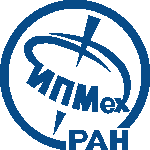
|
ИСТИНА |
Войти в систему Регистрация |
ИПМех РАН |
||
The Seventeenth Marcel Grossmann MeetingКонференция
- Член программного комитета: Липунов В.М.
- Охват: Международная
- Даты проведения: 7-12 июля 2024
- Место проведения: Pescara, Italy, Италия
-
Организатор:
‘Gabriele d’Annunzio’ University - Число участников: 200
- Число иностранных участников: 200
- Веб-сайт: https://indico.icranet.org/event/8/
-
Описание конференции:
Since 1975, the Marcel Grossmann Meetings (on Recent Developments in Theoretical and Experimental General Relativity, Gravitation, and Relativistic Field Theories) have been organized in order to provide opportunities for discussing recent advances in gravitation, general relativity and relativistic field theories, emphasizing mathematical foundations, physical predictions and experimental tests. The objective of these meetings is to elicit exchange among scientists that may deepen our understanding of spacetime structures as well as to review the status of ongoing experiments aimed at testing Einstein's theory of gravitation either from the ground or from space. Previous meetings have been held in Trieste (MG1: 1975, MG2: 1979), Shanghai (MG3: 1982), Rome (MG4: 1985, MG9: 2000, MG14: 2015, MG15: 2018), Perth (MG5: 1988), Kyoto (MG6: 1991), Stanford (MG7: 1994), Jerusalem (MG8: 1997), Rio de Janeiro (MG10: 2003), Berlin (MG11: 2006), Paris (MG12: 2009), Stockholm (MG13: 2012), and online (MG16: 2021). Since 1975, the Marcel Grossmann Meetings (on Recent Developments in Theoretical and Experimental General Relativity, Gravitation, and Relativistic Field Theories) have been organized in order to provide opportunities for discussing recent advances in gravitation, general relativity and relativistic field theories, emphasizing mathematical foundations, physical predictions and experimental tests. The objective of these meetings is to elicit exchange among scientists that may deepen our understanding of spacetime structures as well as to review the status of ongoing experiments aimed at testing Einstein's theory of gravitation either from the ground or from space. Previous meetings have been held in Trieste (MG1: 1975, MG2: 1979), Shanghai (MG3: 1982), Rome (MG4: 1985, MG9: 2000, MG14: 2015, MG15: 2018), Perth (MG5: 1988), Kyoto (MG6: 1991), Stanford (MG7: 1994), Jerusalem (MG8: 1997), Rio de Janeiro (MG10: 2003), Berlin (MG11: 2006), Paris (MG12: 2009), Stockholm (MG13: 2012), and online (MG16: 2021). IUPAP policy statements (weblink) Free Circulation of Scientists: The principle of the Universality of Science is fundamental to scientific progress. This principle embodies freedom of movement, association, expression and communication for scientists, as well as equitable access to data, information and research materials. In pursuing its objectives with respect to the rights and responsibilities of scientists, the International Union of Pure and Applied Physics (IUPAP) actively upholds this principle, and, in so doing, opposes any discrimination on the basis of such factors as ethnic origin, religion, citizenship, language, political stance, gender, or age. IUPAP should only sponsor conferences and events at institutions and in countries that uphold this principle. If scientists are excluded from attending IUPAP-sponsored international conferences by a host institution or country on the basis of any of these factors, IUPAP should register its concern at the highest level of that institution or country, and should not sponsor any future events in that country until such exclusions have been eliminated.
- Добавил в систему: Труханова Мария Ивановна
Доклады:
- 2024 Extreme Universe (Пленарный)
- Автор: Липунов В.М.